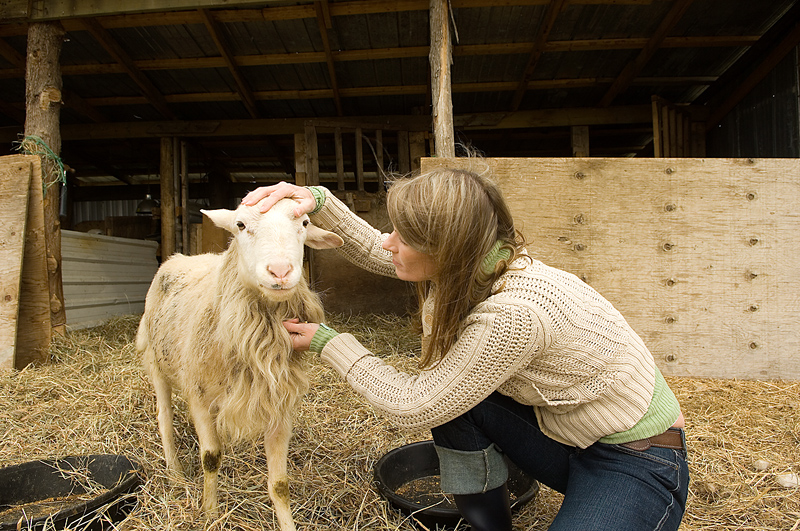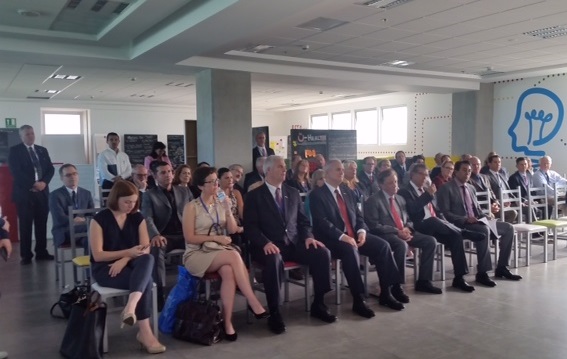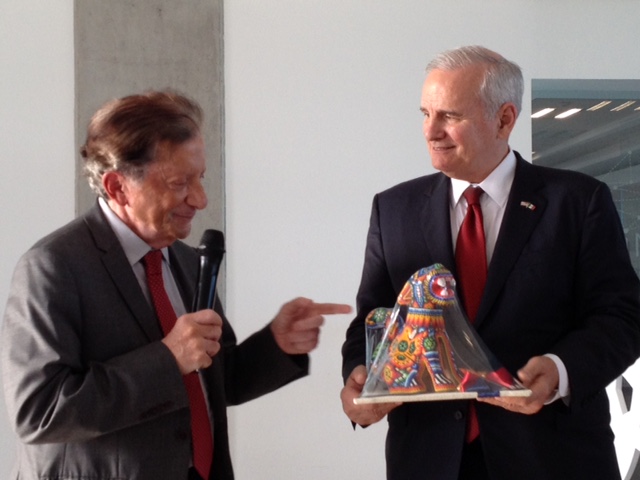8/13/2015 10:14:43 AM
Women play key roles in agriculture in Minnesota and Mexico. And they also face unique obstacles.
That's why Minnesota and Mexico are signing a memorandum of understanding (MOU) this week focusing on the ways women in agriculture can work together to help educate and support each other. The Women in Agriculture and Business MOU is one of five collaborations being signed during Gov. Mark Dayton's trade mission to Mexico this week.
Women play an important role in the agricultural economy. For example, 6,370 Minnesota farms have women as the principal operators, according to the U.S. Department of Agriculture's 2012 Census of Agriculture. The market value of the agricultural products these farms produce is close to $400 million a year.
 Of Minnesota farms where women are the principal operators, the vast majority (5,298) are the full owners of the farms. More than 700 are part owners. And about 366 are tenants.
Of Minnesota farms where women are the principal operators, the vast majority (5,298) are the full owners of the farms. More than 700 are part owners. And about 366 are tenants.
But the influence and leadership of Minnesota women in agriculture extends well beyond the farm. Many women who grow up on farms make their careers in agribusiness.
They work at companies that provide essential goods and services to farmers - seeds, fertilizers, agrichemicals, tractors and other implements. They provide farm-related management, financial and insurance services. They're researchers and crop scientists.
Two women who are delegates with Gov. Mark Dayton's trade mission to Mexico are intensely involved in agriculture and ag-industry promotion. Lori Stevermer is a hog farm owner-operator and president of the Minnesota Pork Producers Association. Suzanne Vold is a dairy farm owner-operator and secretary of the Midwest Dairy Association, which represents 8,000 dairy farm across 10 Midwestern states. These women are leaders and advocates for their industries in the United States and in foreign markets, as well as in local, state and national government.
Minnesota women in agribusiness are especially conscientious about mentoring each other. Minneapolis is home to the Women in Agribusiness Summit, which brings women together from around the country to focus on such industry issues as global food security, GMOs and consumer trends. The summit also provides opportunities for career development, networking and more.
High-powered women from government, academia and industry - including executives from some of the nation's most prestigious companies - attend and speak at the summit. U.S. Deputy Ag Secretary Krysta Harden was a keynote speaker at last year's summit. Sarena Lin, president of Cargill Feed and Nutrition; and Kay Kuenker, vice president of Dow AgroSciences, are slated to speak at the summit this fall.
These relationships are very important, because there are obstacles for women in agribusiness. Studies show that women who come into agribusiness industries at a junior level do so in the same numbers as men. But as you rise up the ranks, female numbers drop - sometimes drastically.
What's more, disparities between women and men affect agricultural productivity and food security, according to the Women in Agriculture and Business MOU. Women agriculture workers face challenges related to education, access to capital and credit, and access to land.
The MOU signed Tuesday seeks to address these disparities. It is a collaboration between the Minnesota Department of Agriculture and Mexico's Secretariat of Agriculture, Livestock, Rural Development, Fisheries and Food (SAGARPA).
The MOU focuses on:
The memorandum, which will be in effect for three years, establishes a link for international coordinators to conduct quarterly updates on the progress of achieving the outlined goals. Groups from Minnesota and Mexico will also travel to each respective country to scout and study the differences in how our two countries support women in the agriculture workforce.
"It benefits all of us if we can find better ways to educate and support women in agribusiness on both sides of the border and create meaningful opportunities for them to mentor and network with each other," says Kathleen Motzenbecker, executive director of the Minnesota Trade Office.
Gov. Dayton and the delegation met with top officials of the Mexican state of Jalisco on Wednesday, including the ministers of economic development, innovation, science and technology, rural development. He also had a private meeting with Governor Jorge Aristoteles Sandoval Diaz. They discussed opportunities for economic, technological and agricultural collaboration between Minnesota and Jalisco.
The venue for the meeting was Mexico Innovation and Design, an incubator that links the industrial and business sector of major creative industries in Jalisco. MIND focuses on making innovation and design a key part of the strategy for the development of new and improved products and processes.

Governor Mark Dayton and members of the Minnesota delegation listen to a presentation at Mexico Innovation and Design in Guadalajara.

Minister Jaime Reyes Robles presents Gov. Dayton with a gift.
Minister Jaime Reyes Robles, Jalisco's secretary of innovation, science and technology, was among the officials to meet with Gov. Dayton and the delegation. Reyes is quite familiar with Minnesota, having earned a master's degree in chemical engineering from the University of Minnesota.
The delegation concluded Wednesday evening with a Minnesota Meets Jalisco business networking reception. The event was attended by leaders in government, business, agriculture and education. It was an opportunity to strengthen existing relationships, establish new partnerships, encourage the expansion of trade and investment with Guadalajara, and promote investment in Minnesota.